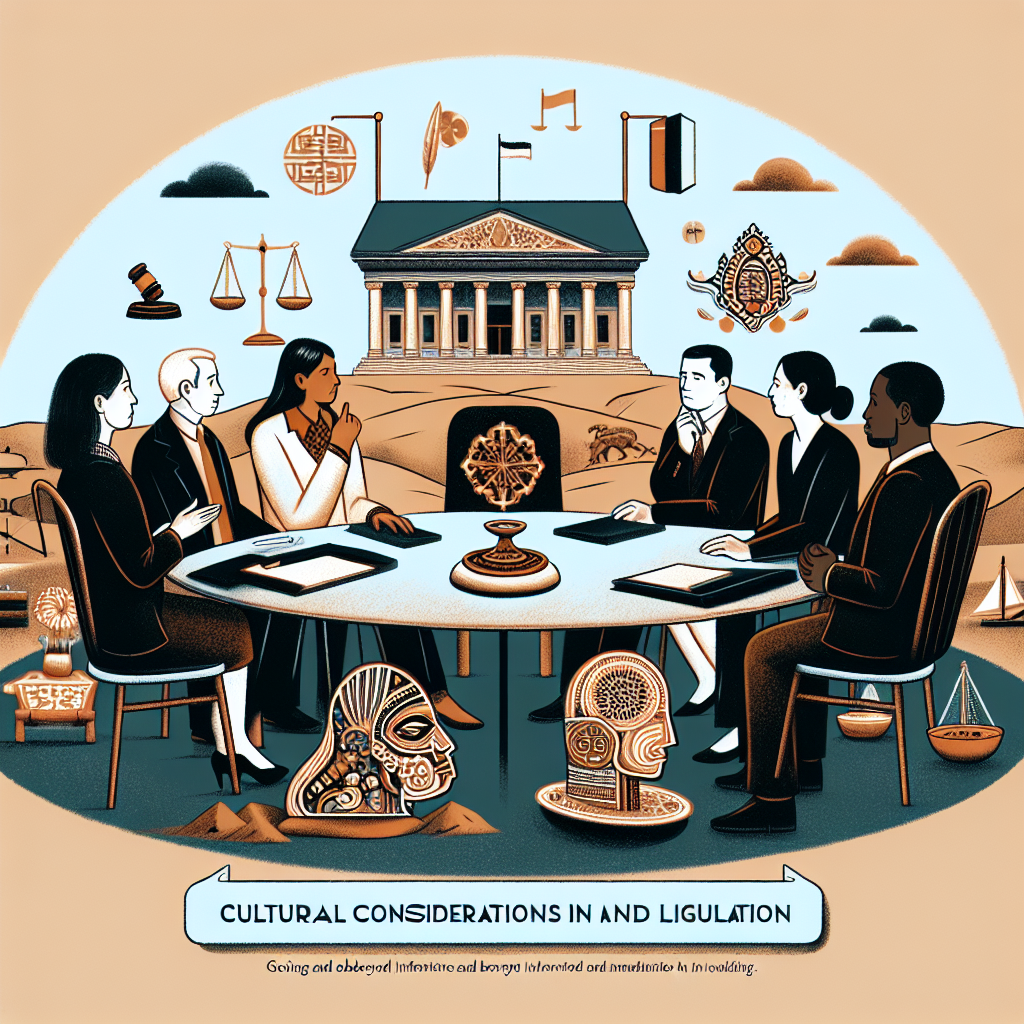Cultural Considerations in Mediation and Litigation

Unlocking Success: Cross-Cultural Mediation and Litigation
Understanding the Importance of Cultural Considerations in Mediation and Litigation
Mediation and litigation are two commonly used methods for resolving disputes and conflicts. While these processes are often seen as objective and impartial, it is important to recognize that cultural considerations play a significant role in how they are conducted and the outcomes that are reached. In today’s globalized world, where individuals and businesses from different cultures regularly interact and engage in legal proceedings, it is crucial to understand and address these cultural considerations in order to ensure fairness and effectiveness in the mediation and litigation process.
Defining Cross-Cultural Mediation and Litigation
Cross-cultural mediation and litigation refer to the use of mediation and litigation techniques in a culturally diverse setting. This can involve parties from different countries, ethnicities, religions, or other cultural backgrounds. These differences can impact how individuals perceive and respond to conflict, as well as their expectations and preferences for how disputes should be resolved.
Cultural Sensitivity in Mediation and Litigation: Key Factors to Consider
When engaging in cross-cultural mediation and litigation, it is crucial for all parties involved to be culturally sensitive. This involves being aware of and understanding the cultural differences that may impact the process and being respectful of these differences. Some key factors to consider include:
- Communication styles and norms
- Power dynamics and hierarchy
- Attitudes towards conflict and negotiation
- Nonverbal cues and gestures
- Gender roles and expectations
- Religious and spiritual beliefs
- Legal and justice systems
Identifying Cultural Differences and Their Impact on the Mediation and Litigation Process
One of the first steps in addressing cultural considerations in mediation and litigation is to identify the specific cultural differences at play and understand how they may impact the process. For example, in some cultures, direct and confrontational communication is seen as appropriate, while in others, indirect and non-confrontational communication is preferred. This can lead to misunderstandings and difficulties in communication during mediation and litigation. Similarly, different cultural attitudes towards time and punctuality can also impact the process, as some cultures prioritize promptness while others may have a more flexible approach to time.
Strategies for Effective Cross-Cultural Communication in Mediation and Litigation
In order to navigate cultural differences in mediation and litigation, it is important to employ effective cross-cultural communication strategies. These may include:
- Active listening and seeking to understand the other party’s perspective
- Using neutral and non-judgmental language
- Being aware of and respectful of cultural norms and differences
- Allowing for breaks and pauses in the conversation to allow for reflection and cultural differences in communication styles
- Using interpreters or translators when necessary and ensuring their cultural competence
- Being open to compromise and finding common ground
Addressing Cultural Biases and Stereotypes in Mediation and Litigation
In addition to being aware of and respectful towards cultural differences, it is also important to address and challenge any biases or stereotypes that may be present in the mediation and litigation process. These biases can lead to unequal treatment and unfair outcomes for individuals from different cultural backgrounds. It is crucial for all parties involved to recognize and address any subconscious biases in order to promote fairness and justice in the process.
The Role of Cultural Competence in Mediation and Litigation
Cultural competence refers to the ability to effectively communicate and work with individuals from different cultural backgrounds. In the context of mediation and litigation, cultural competence is essential for ensuring that all parties are able to fully participate and understand the process. This may involve training and education for mediators and legal professionals to enhance their knowledge and skills in working with diverse cultural groups.
Mitigating Cultural Conflicts and Ensuring Fairness in Mediation and Litigation
Cultural conflicts can arise in mediation and litigation when individuals from different cultures have conflicting values, norms, and expectations. In order to mitigate these conflicts and ensure fairness in the process, it is important to establish ground rules and guidelines for cultural sensitivity and competence. This may involve having a diverse and culturally competent team of mediators and legal professionals, as well as providing opportunities for all parties to share their perspectives and concerns.
Cultural Considerations in Mediation and Litigation: Case Studies and Examples
To better understand the impact of cultural considerations in mediation and litigation, it can be helpful to examine real-life case studies and examples. Some potential examples may include:
- A business dispute between a Western company and a Middle Eastern company, where differences in communication styles and attitudes towards negotiation lead to misunderstandings and difficulties in reaching a resolution.
- A family mediation involving parents from different cultural backgrounds who have differing ideas about parenting and child-rearing practices.
- A personal injury case where cultural biases and stereotypes result in unequal treatment of the plaintiff based on their cultural background.
Best Practices for Incorporating Cultural Considerations in Mediation and Litigation Strategies
In order to effectively address cultural considerations in mediation and litigation, it is important to incorporate best practices into the process. Some potential best practices may include:
- Conducting cultural assessments and identifying potential cultural conflicts and considerations early on in the process.
- Diversifying the team of mediators and legal professionals to ensure cultural competence and sensitivity.
- Providing training and education on cross-cultural communication and sensitivity for all parties involved.
- Creating a safe and inclusive environment for all parties to express their perspectives and concerns.
- Being open to using culturally-specific mediation and negotiation techniques if appropriate.
In conclusion, cultural considerations play a significant role in mediation and litigation, and it is crucial for all parties involved to be aware of and address these considerations in order to ensure fairness and effectiveness in the process. By employing cultural competence, effective communication strategies, and best practices, individuals and businesses can navigate cross-cultural disputes and reach mutually beneficial resolutions.



